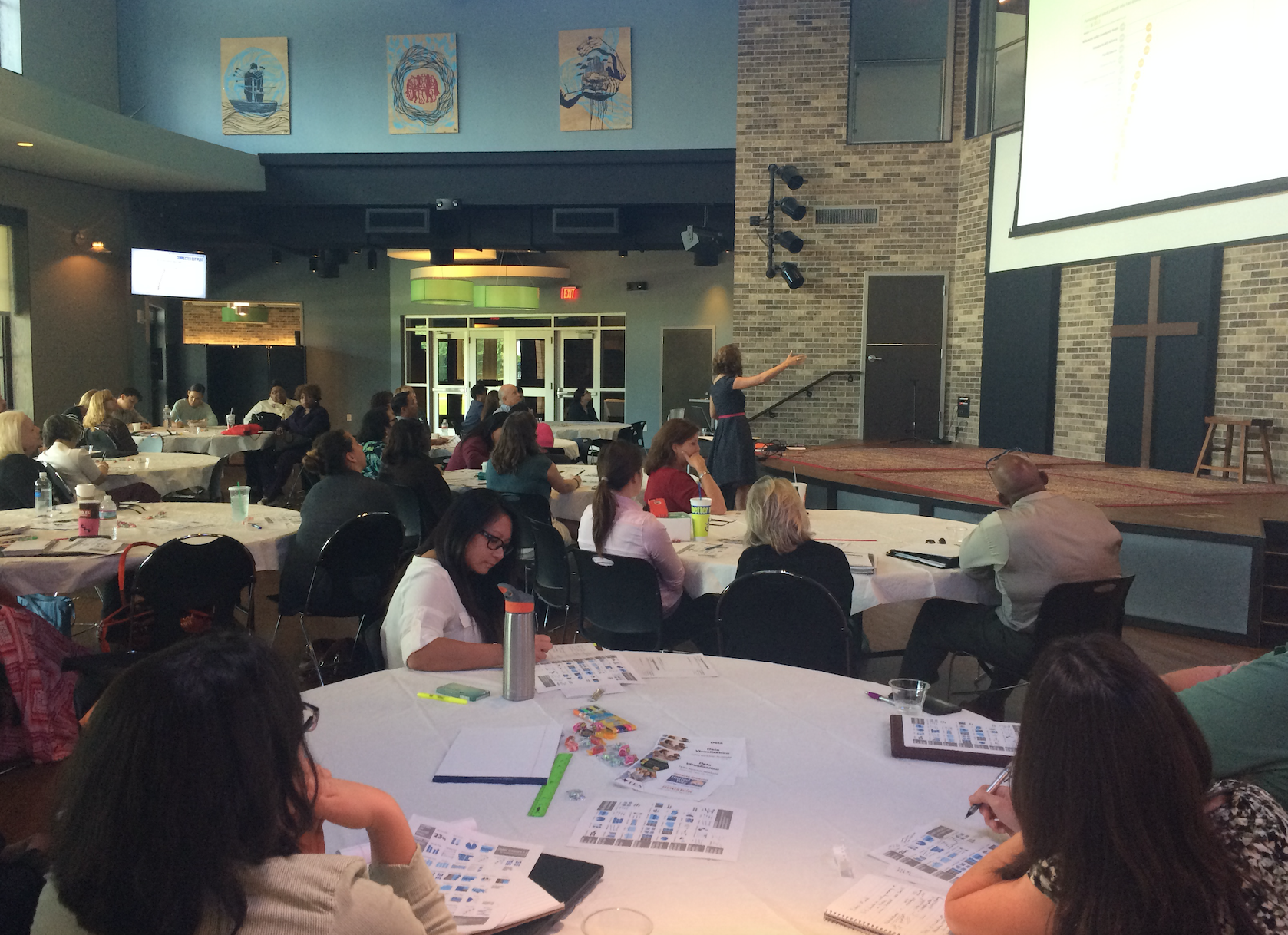
A group of EHF grant partners recently joined organizations across the state to learn how evaluation can be used to help them better measure the true impact on their community.
The Texas Evaluation Network (TEN) organized a series of workshops focused on the benefits of evaluating progress and using this information to improve an organization’s approach toward their work model.
TEN is a volunteer organization dedicated to improving the quality of evaluations by offering professional development and hands on experience for those interested in learning more about evaluation and the evaluation process.
With support from EHF, 18 representatives from 11 grant partners attended TEN’s Summer Institute program at St. Martin’s Episcopal Church in Houston. Participants included AIDS Foundation Houston, Children at Risk, Family Service Center of Galveston County, The Harris Center for Mental Health and IDD, Harris County Protective Services for Children and Adults, Lone Star Circle of Care, Mental Health America of Greater Houston, Northwest Assistance Ministries, ProUnitas, Texas Association of Charitable Clinics and The Rose.
This was the first time TEN held the program in Houston. Organizers prepared for the four-day workshop by talking with organizations about their experience with evaluation. They soon discovered many nonprofits didn’t know what evaluation meant or the importance of the proper ways of conducting an evaluation.
“Organizations need to understand the importance of having evaluation skills,”said Jessica Pugil, workshop coordinator and TEN member. “It’s always good to know what impacts your work habits. It gives perspective. When we evaluate our program, we want to be able to improve our program in order to increase our impact. This is how we can take what we’re doing well and do it better to help more people.”
The workshop sessions focused on the importance of evaluation, plus how to design an evaluation and gather the information. The program also featured ways organizations can analyze evaluation information and present it in a way everyone will understand.
Suzanne Leahy, EHF’s evaluation officer, led a workshop session about the process of staffing an evaluator based on the needs of the organization. The session also included information on budgeting for evaluation and the benefits of utilizing internal versus external evaluators.
“The point of evaluating is to get better at what we do.” Leahy said. “An opportunity like this will help nonprofits understand evaluation and the steps in how to conduct it effectively. These kinds of workshops will allow the concept to have a strong bench so that companies and organizations feel they have a strong network to grow with in the future.” Leahy said.
Organizations learned the standards and options in evaluation techniques and approaches. The information was designed to help organizations choose what evaluation methods work best for their particular goals.
At the end of the sessions, Pugil said many grant partners felt the experience to be eye-opening and potentially instrumental in their current stages as an organization.
“These workshops couldn’t have come at a better time,”said Jody Hopkins, executive director of the Texas Association of Charitable Clinics. “It was a great perspective from start to finish on how you do an appropriate evaluation. My biggest takeaway was realizing that you need to start planning for a program evaluation when you do the program. The two should be done in tandem which is exactly what we are going to do now with a current program.”
TEN’s goal is to teach organizations and companies how to evaluate their progress so that they can improve, plan and implement techniques to continue and better that progress. To learn more, visit www.texasevaluationnetwork.org.